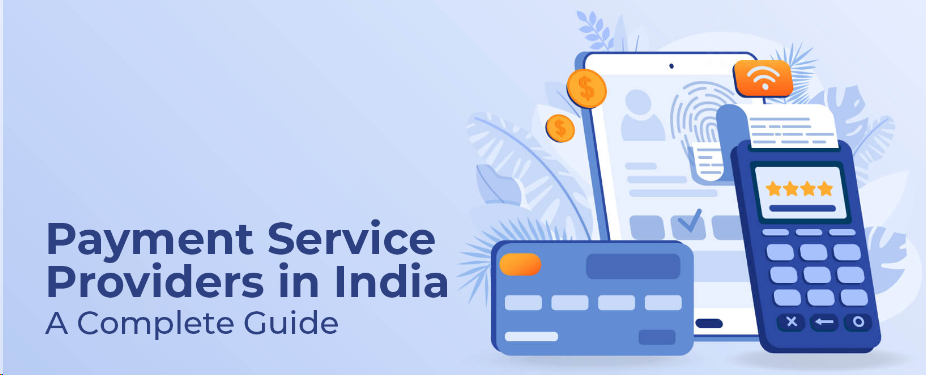AUTHOR : ISTELLA ISSO
DATE : 14/12/2023
Introduction
In the dynamic landscape of India’s financial sector, Payment Service Providers (PSPs) play a pivotal role in facilitating seamless transactions and fostering digital financial inclusion. This article delves into the evolution, services, challenges, and future trends of PSPs in India.
Evolution of Payment Service Providers in India

Early Payment Methods In the pre-digital era, traditional payment methods dominated the market. Cash transactions and checks were the norm, posing challenges for businesses and consumers alike. Advent of Digital Payment Solutions The turning point came with the introduction of digital payment solutions, making transactions more efficient and convenient. This marked the beginning of a significant shift towards electronic payments.
Rise of Payment Service Providers PSPs emerged as key players, leveraging technology to bridge gaps in the financial ecosystem. Their role became increasingly crucial as India embraced the digital revolution.
Key Players in the Indian Payment Service Provider Market
Overview of Major PSPs Prominent PSPs in India, such as Paytm, PhonePe, and Razorpay, have revolutionized the payment landscape. Understanding their market presence is vital for businesses seeking reliable payment solutions. Market Share Analysis Analyzing the market share of PSPs provides insights into their competitiveness and influence within the industry. This section explores the dominance and growth trajectories of key players.
Services Offered by Payment Service Providers
Transaction Processing Efficient transaction processing is the hallmark of PSPs. This involves the seamless transfer of funds between consumers and merchants, ensuring a hassle-free experience.
Payment Gateway Solutions PSPs offer secure and user-friendly payment gateway solutions, facilitating online transactions for businesses. This has become imperative for e-commerce platforms and other digital businesses.
Merchant Services Beyond transactions, PSPs provide a suite of merchant services, including invoicing, analytics, and fraud prevention. These services streamline operations for businesses of all sizes.
Advantages of Using Payment Service Providers

Convenience for Consumers PSPs enhance consumer convenience by offering various payment options, including mobile wallets, UPI, and credit/debit cards. Online Payment Service Providers[1] This flexibility caters to diverse consumer preferences. Enhanced Security Measures Security is a top priority for PSPs. Payment system[2] Robust encryption, multi-factor authentication, and fraud detection mechanisms ensure the safety of financial transactions, building trust among users. Streamlined Business Operations for Merchants For businesses, partnering with PSPs translates to streamlined financial operations Payment gateway[3]. Quick settlements, automated invoicing, and real-time analytics contribute to operational efficiency.
Challenges Faced by Payment Service Providers
Security Concerns As technology advances, E-commerce payment system[4] so do the tactics of cybercriminals. This section explores the evolving nature of security threats and how PSPs mitigate risks to protect user data. Regulatory Challenges Navigating regulatory frameworks is a constant challenge for PSPs. Mobile payment[5] Compliance with government regulations and financial standards requires strategic planning and adaptability. Competition in the Market The crowded market poses challenges for PSPs to differentiate themselves. Innovations, customer-centric approaches, and strategic partnerships are essential for staying ahead.
Future Trends in the Payment Service Provider Industry
Technological Advancements Continuous technological advancements, such as biometric authentication and tokenization, are reshaping the PSP landscape. Staying abreast of these innovations is crucial for sustained success.
Integration of AI and Blockchain AI and blockchain technologies are poised to revolutionize payment processing. This section explores how these technologies enhance security, transparency, and efficiency.
Expansion of Contactless Payments The rise of contactless payments, driven by NFC technology, is changing the way consumers transact. PSPs need to adapt to this trend to cater to the evolving preferences of users.

How to Choose the Right Payment Service Provider
Factors to Consider Selecting the right PSP is a strategic decision for businesses. Factors like transaction fees, security features, and customer support must be carefully evaluated.
Case Studies of Successful Partnerships Examining real-world case studies highlights the positive impact of choosing the right PSP. Success stories from different industries provide valuable insights for businesses in their decision-making process.
Case Studies: Successful Implementation of Payment Service Providers in India
E-commerce Sector This case study explores how leading e-commerce platforms have benefited from partnering with PSPs, optimizing customer experiences and boosting revenue.
Small and Medium Enterprises (SMEs) SMEs play a crucial role in India’s economy. Discover how PSPs have empowered these businesses by providing tailored solutions that meet their unique needs. Retail Industry In the competitive retail landscape, PSPs have played a transformative role. This case study delves into how retail businesses have leveraged PSP services to enhance customer satisfaction.
Conclusion
In conclusion, Payment Service Providers have become integral to India’s evolving financial landscape. Their role in enhancing convenience, security, and accessibility is undeniable. As technology continues to advance, PSPs must adapt to stay relevant and contribute to the ongoing digital transformation.
FAQs
- What are the different types of payment services offered by PSPs?
- Payment Service Providers offer a range of services, including transaction processing, payment gateway solutions, and merchant services. Each caters to specific needs within the financial ecosystem.
- How do PSPs ensure the security of transactions?
- Security is a top priority for PSPs, who employ robust encryption, multi-factor authentication, and advanced fraud detection mechanisms to safeguard user data and financial transactions.
- Can businesses of all sizes benefit from using Payment Service Providers?
- Yes, businesses of all sizes can benefit from partnering with PSPs. PSPs offer scalable solutions, from small and medium enterprises to large corporations, enhancing operational efficiency and customer satisfaction.
- What is the role of regulatory bodies in overseeing PSPs in India?
- Regulatory bodies play a crucial role in ensuring compliance with government regulations and financial standards. PSPs must navigate these frameworks to operate effectively and responsibly.
- How do technological advancements impact the future of PSPs?
- Technological advancements, such as AI and blockchain integration, are shaping the future of PSPs by enhancing security, transparency, and efficiency in payment processing.




